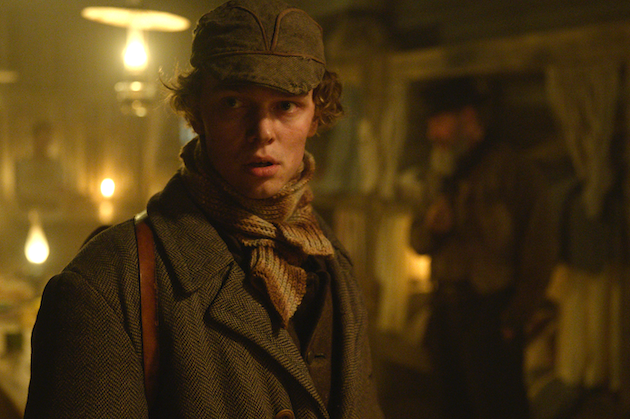‘Pathfinder’ Director Nils Gaup Opens Up About ‘The Riot,’ a New Documentary About Shamanism: ‘I Try to Tell Stories That Mean Something’ (EXCLUSIVE)

Nils Gaup, behind Oscar-nominated “Pathfinder,’ intends to follow his latest film “The Riot” with a new documentary about shamanism.
Under the working title “Koven” and named after its protagonist, it will focus on a Sámi man whose ancestor was Norway’s biggest shaman.
More from Variety
“He is this extremely well-educated guy. A scientist, a sceptic. And then he experiences something he cannot explain. He thinks he is going crazy!,” Gaup tells Variety.
“He starts to study shamanism, still thinking he can get to the root of it all. But here is the thing: Unless you experience something like this yourself, you won’t believe it. It’s like falling in love. If you’ve never known love, you just don’t get why all these people are acting so strange,” he laughs.
Gaup, who is also Sámi, has already ventured into the unknown with his acclaimed debut “Pathfinder.”
“I am going full circle! The whole thing is about listening to nature, which is what Sámi people have always done. If you communicate with it, you can’t destroy it. You can’t kill another person or bomb a city. These ‘old ways’ can teach us how to understand our universe in a completely different way.”
In his search for the inexplicable, Gaup – also behind 2021 doc “Images of a Nordic Drama” – will head outside of Norway.
“We go on a whole journey with him: to America, Siberia, Africa, Japan and Australia. I think it’s an important movie to make. We have already been filming a lot.”
Despite its scope, he is looking forward to telling a more intimate story than historical epic “The Riot,” shown at Goteborg and taking on the dramatic uprising of the miners in 1907.
“It can be exhausting to make films like ‘The Riot’ in Norway. You have to fight like hell to finance them, so now I want to make something smaller. Then again, I had to tell that story. It’s really the beginning of the so-called Nordic model. When I used to live in the US, people kept asking me about it and I couldn’t really explain it. Now, I got my chance.”
In order to do it, he had to go all the way back to the start. Showing young worker Konrad (Otto Fahlgren), sold into slavery as a child, going from an informant to someone who slowly realizes his own self-worth.
“It all started with working people taking charge of their own life and daring to fight for it. But today, this model is disappearing. The rich are getting richer or moving to Switzerland to avoid taxes, the poor are struggling – just like in the US. It’s on the verge of breaking down,” he notes.
“We need to talk about those who are ignored, because let’s face it: the rich will exploit this planet until the bitter end. All they care about is competing with each other. So often, we make films about heroes. I prefer looking for hidden stories and invisible people. Not everyone needs to do that, but I feel I have to.”
Produced by Tom Vidar Karlsen and Trond Eliassen for Storyline – and sold by REinvent Studios – despite its period setting Gaup’s drama proved surprisingly timely, he stresses.
“Take Konrad. He makes mistakes, he has to make choices and so do young people today. Are they going to support those who are destroying the Earth or those who are trying to stop it? You have to know the past to understand the present and to plan for the future.”
Since “Pathfinder” and his stint in the U.S., Gaup hasn’t been afraid of a bigger scale.
“People don’t watch films in cinemas anymore, and that’s just bad. That’s why I think we have to make them bigger. This way, you feel like you have to see them on the big screen and not on your iPad,” he says.
“In the U.S., they like to tell stories and they do it in a clever way. In Europe, we tend to be more arthouse-y. There is nothing wrong with that, but maybe we should rethink our strategy a little. When you talk about difficult things, you have to use your movie-making skills to make sure it’s still entertaining. For me, that’s the way to do it,” he adds, looking back on his legacy of putting the viewer first.
“At the end of the day, I try to tell stories that mean something. Sometimes it works and sometimes it doesn’t, that’s the way it is in this business, but I see myself more as a classic storyteller than an artist. I hope I will be remembered for that.”
Best of Variety
Sign up for Variety’s Newsletter. For the latest news, follow us on Facebook, Twitter, and Instagram.

 Yahoo Lifestyle
Yahoo Lifestyle 